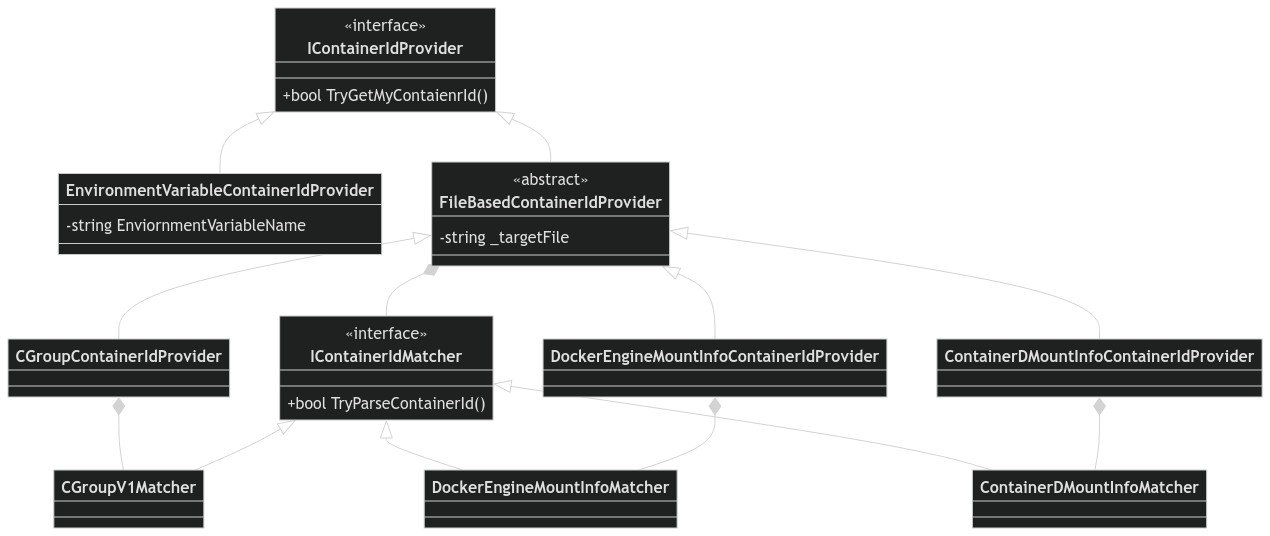Overview
Container id is useful. In telemetry, it helps locate exactly which instance, at when, events got emit. In this library, it is also used to locate the pod.
This design at this stage is specific to code running on Linux, we don't support getting container id on Windows yet.
Cascading container id providers and why
We have multiple container id providers, trying to get different container ids from various locations. That is needed because there are various ways to get container id depending on the configurations, for example, is the host using cgroupv1 or cgroupv2, is the runtime docker engine or containerd.
Unfortunately, at this moment, there's no fully consistent way to get container id with in a docker container.
Current fallbacks
Here's how the fallback happens today:
-
When environment variable of
ContainerIdis provided, it is the most straightforward way to get the container id. However, this requires the variable to be setup, where there's no consistent way to do that. -
Using info from
cgroupV1has been working untilcgroupV2becomes popular. And the container id is not easy to fetch any further. -
MountInfois a practical substitution to get container ids, the mount point vars by different container runtime, thuscontainerd with mountinfoordockerengine with mountinfo.With all those fallbacks, a compromise is that they all rely on implementations rather than abstractions. And implementations could change. It actually happened once for
cgroup v1during the early ages. It is still expecting to happen until we have an abstraction to describe how to get container id with in a container. -
What happens when all of the info are failed? Today, it will output a warning, and since there's no container id, logic to locate pod will not work, leading to no enhance of the telemetry.
-
That could be mitigated by setting up the container id in the environment variable of
ContainerId.
Implementing a container id provider
- Every class that implements IContainerIdProvider owns a way to provide the container id;
- File-based container id is an abstraction of the providers that get the info from a file, and composes a parser (matcher) to extract the container id from the content of the file.
Contribution guideline
It is appreciated you considering contribute to IContainerIdProvider. Pick the right extension point saves you time and keeps the code consistent, and it boils down where the container id is fetched and how is it fetched.
-
If it comes from a file (like
/proc/self/cgroupor/proc/self/mountinfo), inheritFileBasedContainerIdProvider; For testability, when possible, use the provider class as the composer ofIContainerIdMatcher, and put the logic to identify container id in the matcher - so that the matcher could be easily tested. -
If it comes from somewhere else, an environemnt variable for example, implement
IContainerIdProvider. It is recommended to having it compose a mather/parser unless it is very straightforward.

